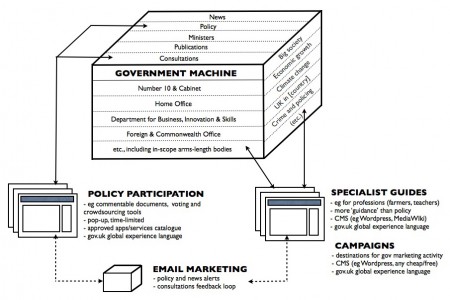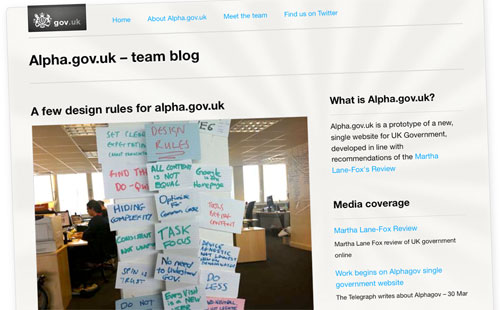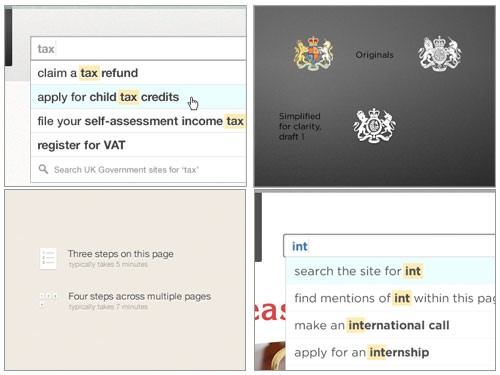Following on from March’s publication of the new government ICT strategy, the Cabinet Office has published its implementation plan – a long and detailed document, full of specific milestones, risks and nominated Senior Responsible Owner, leading to projected savings of ‘around £1.4bn of savings within the next 4 years’ (according to the press release).
‘Our plans are focused on standardising government ICT,’ states the foreword, with a pledge to ‘fundamentally change how government incorporates ICT into its everyday business. It will ensure the early factoring of technology considerations into the design of policy, increase digital inclusion, reduce the cost of our operations, and ensure information is shared and transparent where possible and always handled appropriately.’ Good news on all fronts, you’d have to say.
The document covers so much ground, it’s almost impossible to provide a meaningful summary of it. But to pick out a few highlights, based on the areas of particular interest to this blog and this blogger:
- Open source: a ‘toolkit to assist departments in the evaluation and adoption of open source solutions’ is due for completion this month, although it will only be accessible by ‘100% of departments’ by next March. By March 2013, ‘100% of all department software procurement activity includes an open source option analysis’. The Senior Responsible Owner for Open Source is Robin Pape, CIO for the Home Office.
- Open technical standards: the findings from the recent ‘crowd sourcing’ exercise will be published this month, with ‘the first release of a draft suite of mandatory Open Technical Standards’ to follow in December. Levels of adoption of these will be reviewed in six months.
- App Store: will launch in March 2012, but rather unambitiously, they’re giving it until the following December to reach ’50 accredited products’. Sounds like it’ll be pretty empty until this time next year.
- Single domain: The launch of a ‘Beta version of single government web domain for public testing’ is set for February 2012.
- APIs: I’m pleased to see the statement that ‘Government will select common standards’ – as opposed to defining its own. But despite having apparently completed a review of existing cross-government APIs in March 2011, it’s going to take until September 2012 for a list of APIs to be published. Like the single domain work, this stream will be owned by Mike Bracken.
- Consultation: This one looks a bit odd. All departments are to have established a ‘digital channel for online consultation’ by December 2011… but then in February, the GDS ‘online consultation product’ will have been delivered, which makes you wonder why they’re making departments spend time and money getting something together for December. Said GDS product will be ‘integrated’ into Single Domain by October 2012.
- Social media: Maybe it’s me, but it seems a bit odd that the lead department on departmental access to social media sites should be the Home Office: they’ll be producing ‘final guidelines’ by March next year. Verification of existing government social media accounts ‘where appropriate’ is to be completed by next month.
It’s good to see so many specific dates and people in this document, and I think we can take a lot of encouragement from the plan as a whole. Personally, though, I can’t help feeling slightly excluded. I don’t see too many specific areas where Puffbox, or someone like us, can offer a contribution.




